
Laura Sanders reports on neuroscience for Science News. She wrote Growth Curve, a blog about the science of raising kids, from 2013 to 2019 and continues to write about child development and parenting from time to time. She earned her Ph.D. in molecular biology from the University of Southern California in Los Angeles, where she studied the nerve cells that compel a fruit fly to perform a dazzling mating dance. Convinced that she was missing some exciting science somewhere, Laura turned her eye toward writing about brains in all shapes and forms. She holds undergraduate degrees in creative writing and biology from Vanderbilt University in Nashville, where she was a National Merit Scholar. Growth Curve, her 2012 series on consciousness and her 2013 article on the dearth of psychiatric drugs have received awards recognizing editorial excellence.

Trustworthy journalism comes at a price.
Scientists and journalists share a core belief in questioning, observing and verifying to reach the truth. Science News reports on crucial research and discovery across science disciplines. We need your financial support to make it happen – every contribution makes a difference.
All Stories by Laura Sanders
-
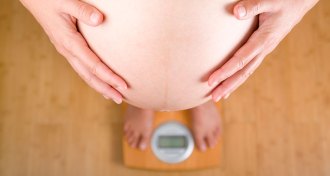 Health & Medicine
Health & MedicineWhen it comes to baby’s growth, early pregnancy weight may matter more than later gains
Women’s weight before and during the first half of pregnancy may be most important indicators of baby’s birth weight.
-
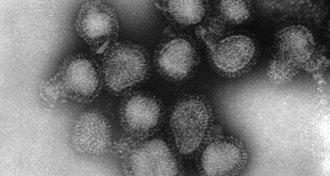 Neuroscience
NeuroscienceSome flu strains can make mice forgetful
Mice infected with influenza had memory problems a month later, a result that hints at a link between infections and brain performance.
-
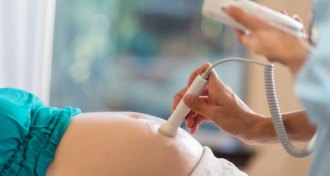 Health & Medicine
Health & MedicineA new study eases fears of a link between autism and prenatal ultrasounds
On almost every measure, prenatal ultrasounds doesn’t appear to be related to a risk of developing autism, a recent study finds.
-
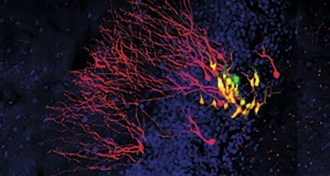 Neuroscience
NeuroscienceWatch nerve cells being born in the brains of living mice
For the first time, scientists have seen nerve cells being born in the brains of adult mice.
-
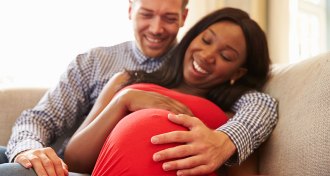 Health & Medicine
Health & MedicineBabies’ kicks in the womb are good for their bones
A new study adds to the evidence that fetal workouts are important for strong bodies.
-
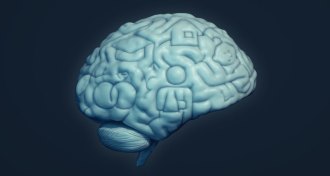 Neuroscience
NeuroscienceSomewhere in the brain is a storage device for memories
New technology and new ideas spur the hunt for the physical basis of memory.
-
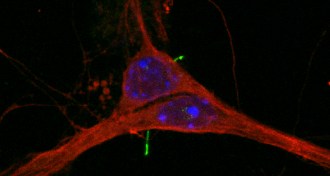 Neuroscience
NeuroscienceCilia in the brain may be busier than previously thought
A hairlike appendage sticking out of brain cells may be much more important in the brain than scientists realized.
-
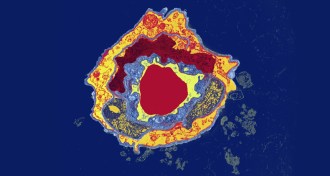 Neuroscience
NeuroscienceProtein helps old blood age the brains of young mice
Increased levels of one protein in old blood may contribute to its aging effects on the brain, a mouse study suggests.
-
 Health & Medicine
Health & MedicineThe science behind kids’ belief in Santa
Children’s belief in Santa is strong — until it isn’t anymore, usually at around age 8.
-
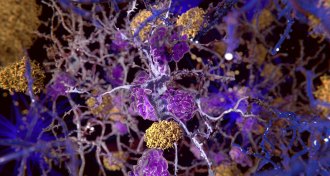 Neuroscience
NeuroscienceSpecks in the brain attract Alzheimer’s plaque-forming protein
Globs of an inflammatory protein can spur the formation of amyloid-beta clumps, a study in mice shows.
-
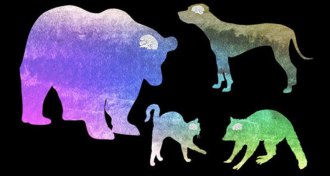 Neuroscience
NeuroscienceIn a tally of nerve cells in the outer wrinkles of the brain, a dog wins
Among some carnivores, golden retrievers rate at the top for numbers of nerve cells, study finds.
-
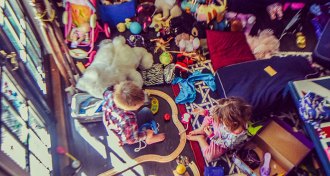 Health & Medicine
Health & MedicineAn abundance of toys can curb kids’ creativity and focus
Too many toys may lead to more shallow play for toddlers, a new study suggests.